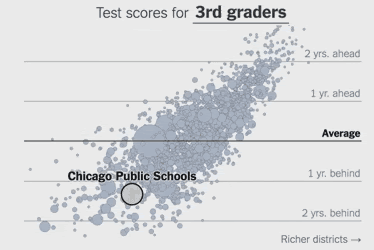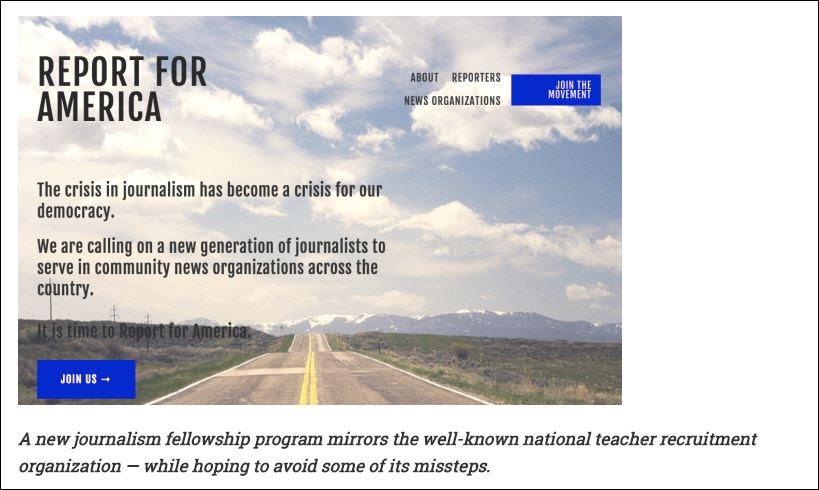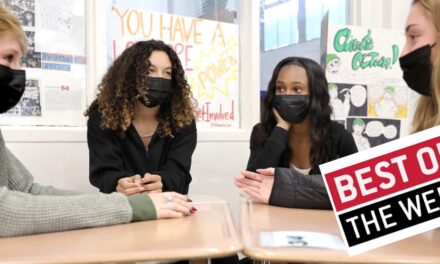| MEDIA TIDBITS
AP SEGREGATION CONTROVERSY
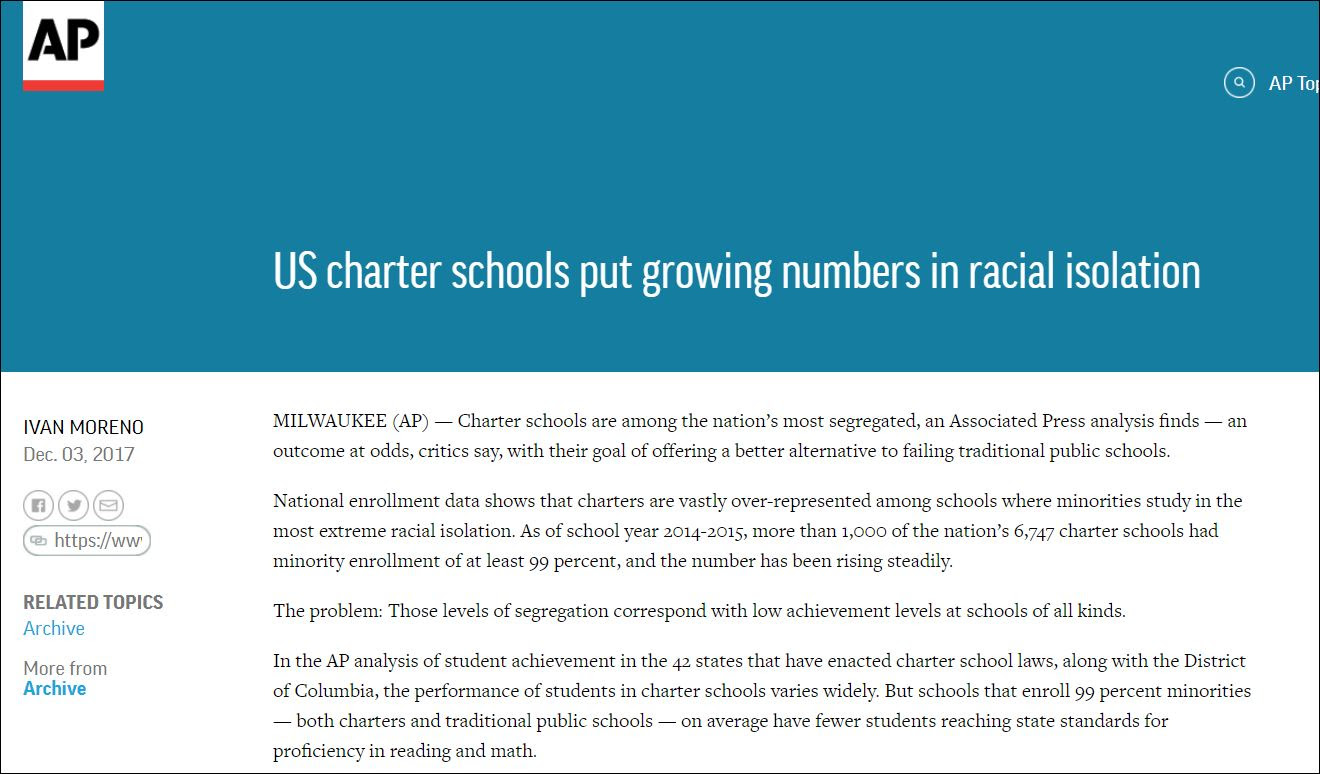
The AP’s story about charter schools and school segregation has generated howls of outrage from charter advocates and polite complaints from a few journalists. My only real contribution is to wonder whether the AP story might be an example of racial and cultural blind spots in mainstream journalism. The piece not only claims that integration is the sole research-proven way to address education inequality but also presumes that integration is a priority for all groups of parents.
FROM CHALKBEAT, A SURPRISINGLY POOR ATTEMPT AT NATIONAL COVERAGE
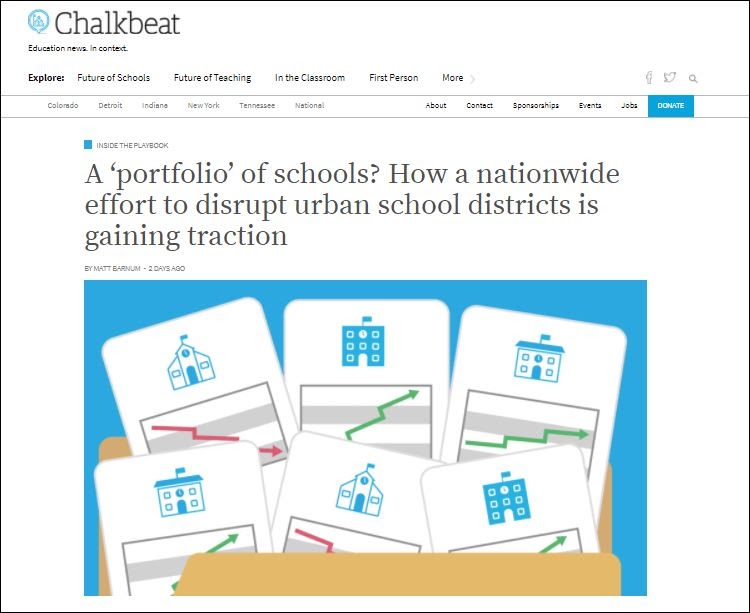
In Chalkbeat, Matt Barnum penned a problematic overview of “a loosely connected network of nonprofit groups… working to reshape the way their school districts function.” Perhaps the most obvious of several problems is Barnum’s top section claim that the portfolio approach is spreading nationally when the second half of the piece is full of problems and setbacks. Another obvious flaw is that the piece gives readers no real historical or financial context in which to understand the network whose work he describes. Chalkbeat is still new at national education news, so I’m hoping this is just an early stumble.
PROFILING MOSKOWITZ
Elizabeth Green’s profile of Eva Moscowitz in The Atlantic is one of the most-discussed pieces of the week. In it, she explores the growth of Success Academy, its advantages over traditional bureaucratic school systems, and the worries that are created when a school network’s main form of oversight is parent decisions. Notes Green, “the charter-takeover model is the most effective solution to our public school woes that we’ve found. It’s also the least democratic.” See also Rebecca Mead’s New Yorker profile of Moskowitz.
MISSING DATA IN PROPUBLICA STORY
A new piece from ProPublica links involuntary placements in alternative programs to the Trump administration and the idea of school choice, but this practice predates the current administration by decades and the piece doesn’t say whether it’s on the rise or falling. |




